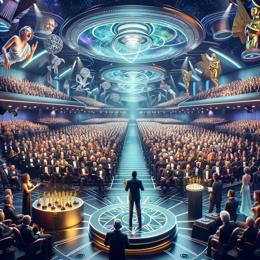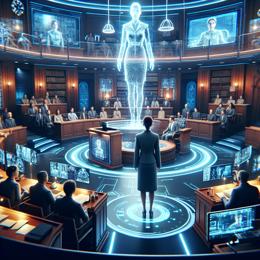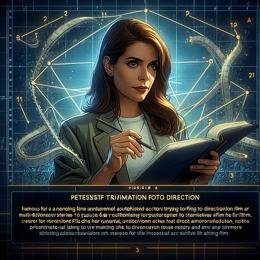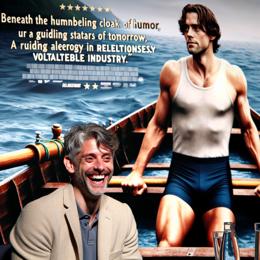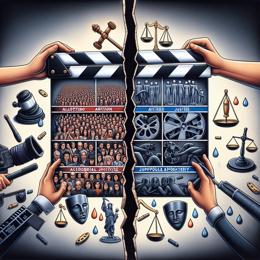Image created by AI
Martin Scorsese Urges Directors to Embrace Technology at Berlin Film Festival
In an era where technology is rapidly transforming the landscape of the film industry, US cinema legend Martin Scorsese stands as a beacon of optimism and guidance. Addressing a congregation of film professionals and enthusiasts at the Berlin film festival, the acclaimed director shared a compelling vision – artists should leverage technology to enhance their creative voice rather than cower in its shadow.
Martin Scorsese, a venerated figure in American filmmaking, has been nominated for a historic 10th best director Oscar for his upcoming film, Killers of the Flower Moon. It's this pedigree of relentless innovation and excellence that underscored his sentiments during an inspiring press conference at one of cinema's most prestigious gatherings.
His presence at the Berlin film festival was not merely ceremonial; the director was honored with an Honorary Golden Bear, an accolade that commemorates a lifetime of achievements. But, rather than solely bask in the nostalgia of his storied career, Scorsese elected to focus his address on the road ahead for the film industry.
Scorsese underscored the potential held within the grasp of current and future directors to mold and direct the tide of technological advancements in film. In an industry exuding apprehension over the surge of platforms like streaming services, which threaten traditional big-screen viewing experiences, Scorsese provides a different narrative. He's vehement that the key to filmmaking's future longevity lies in the hands of those who create it.
Refusing to concede to the notion that cinema's days are numbered due to the proliferation of 'small-screen diversions,' Scorsese champions the belief that big-screen entertainment has a vibrant future. That's not to dismiss the impact of digital platforms, but to assert that the onus is on filmmakers to adapt and thrive within the novel opportunities that technologies afford them.
The remarks made by Scorsese resonate particularly in a time when the film industry is navigating the waters of post-pandemic recovery and exploring the frontiers of innovations like virtual and augmented reality, artificial intelligence, and high-definition digital photography. Directors are now presented with an arsenal of tools that were once the stuff of science fiction. From de-aging actors to creating vast digital worlds, the possibilities are boundless.
It's this progressive mindset that Scorsese enjoins his peers to adopt – to see themselves not as victims of an evolving digital tide, but as masters of a new domain where their visions can be rendered more vividly and with greater fidelity to their original intent.
Scorsese's impassioned address strikes a chord with the film community, serving as both a call to arms and a lighthouse in the midst of an industry often perceived as being in tumult. As creators navigate the shifting sands of the media landscape, voices like Scorsese's offer solace and a sense of direction for the mantle bearers of narrative art.
The legendary director's stance sends a clear message: filmmakers must seize technology as a vessel through which storytelling can evolve, lest it faces the risk of becoming obsolete. By reiterating cinema's inherent magic – its unparalleled ability to captivate audiences on the silver screen – Scorsese reaffirms his faith in the medium's enduring appeal while embracing the inevitable march of progress.
In conclusion, Martin Scorsese's perspective rings out as a clarion call for creative resilience in the face of technological change. His outlook is a blend of reverence for cinema's past and an unwavering belief in its future, one that will be written by the artists who dare to harness the power of the tools at their disposal.

